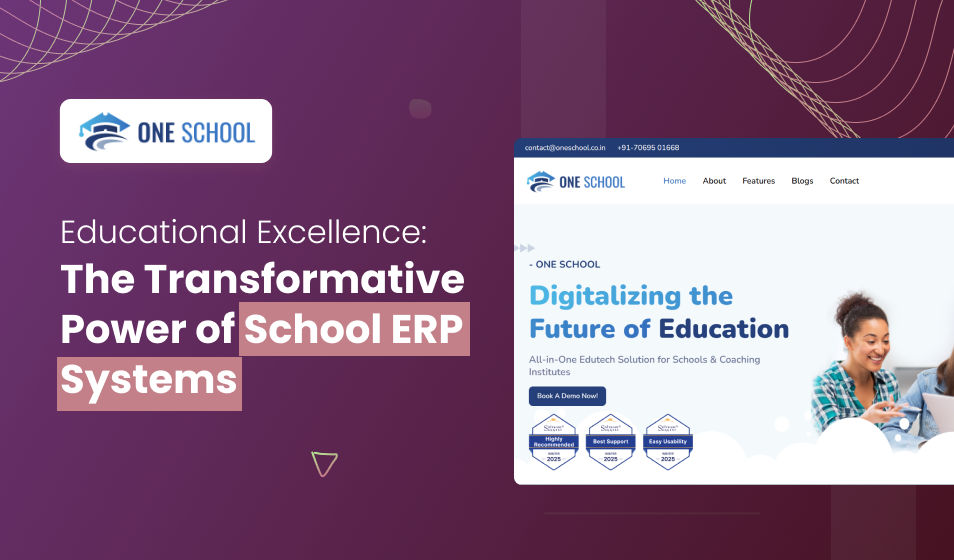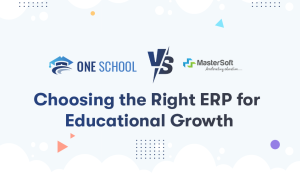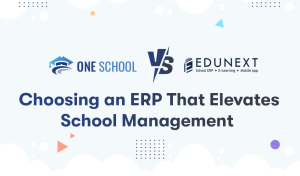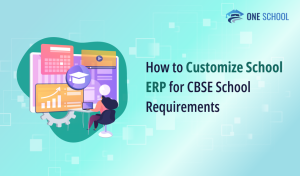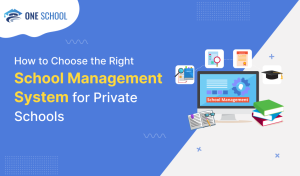In a world increasingly digitalized, the old chalkboard and paper-based administrative infrastructure is fast becoming outdated. Education, just like any other industry, is in the midst of a significant technological overhaul. Right at the center of this revolution is the School ERP (Enterprise Resource Planning) system – an integrated, complete software solution that consolidates and automates numerous administrative and academic functions of a school. Rather than a mere expensive piece of software, a good School ERP is a strategic investment that reveals unprecedented efficiency, transparency, and ultimately, raises the whole educational experience.
The idea of ERP was developed in the manufacturing industry, but its integration and optimization principles were just as useful in the complex activities of a school. Think of an all-encompassing platform from where student admissions, attendance, fee collection, academic record keeping, staff management, communication, and even library facilities are all integrated and can be accessed. This is the potential of a School ERP, and its advantage resonates through all aspects of the school environment, from administrators and teachers to students and parents.
Boosting Administrative Efficiency
Perhaps the most immediate and significant advantage of having a School ERP is the huge gain in administrative effectiveness. Manual entry of data, paper pathways, and dispersed information are well-known time and resource wasters. With an ERP, these functions are automated and combined in a single, centralized system. Admissions are a snap with online application systems and automated processing.
Collection of fees is made easier by built-in payment portals and automated reminder notifications, resulting in less delay and better financial control. Report generation, which used to take hours to complete, now takes just minutes, giving the administrator real-time feedback on several different school operations. Such greater efficiency allows administrative personnel to spend more time on high-level activities and not be overwhelmed with mundane tasks.
Enhancing Academic Management
Beyond the administrative efficiency, a School ERP also greatly improves academic management. Teachers can easily mark attendance, handle grades, develop lesson plans, and distribute homework via a special portal. Not only does the system save teachers’ time, but it also keeps a consistent and accurate record of student progress.
Parents are given instant access to their child’s academic performance, history of attendance, and work pending, which increases transparency and facilitates active participation. Keeping an eye on the progress of individual students over a period of time allows teachers to detect gaps in learning and provide focused support, thus enhancing the overall academic performance of students.
Strengthening Communication and Collaboration
Improved communication and cooperation are a pillar of advantage of School ERP systems. The system is a central platform for all stakeholders. Parents can communicate with teachers directly, get important updates, and keep abreast of school activities through specially designed portals or mobile apps. Teachers can cooperate better, sharing resources and knowledge. School administration can distribute information rapidly and effectively to the entire school community. This uninterrupted exchange of information reduces miscommunication, creates a more united school community, and keeps everyone on the same page.
Optimizing Resources and Saving Costs
Finances-wise, an ERP School provides tremendous resource savings and optimization. Through automated fee collection and transparent financial reporting, schools are able to have greater control over cash flow and realize where savings can be made. Less use of paper for communication, reports, and administrative forms means huge environmental and cost savings. Additionally, more accurate data reduces errors that may result in financial inaccuracies or waste of resources.
Ensuring Data Security and Accessibility
With the present digital era, data security and availability are of utmost importance. School ERP software offers a secure and centralized place for all school data. Such an organization ensures that key information is safeguarded by robust security protocols and is available only to approved personnel. In case of unforeseen issues or loss of data, the recovery and backup functions ensure that key data is secure. All the data in one place also ensures consistency and reduces the issues caused by disparate, independent systems.
Fostering a Student-Centric Learning Environment
Finally, and most significantly, a School ERP is a vital component of creating a student-centered model of learning. Through enabling parents to view their child’s performance at the right moment, promoting openness of communication, and enabling teachers to spend more time on teaching, the system enables students to assume the role of independent learners. It provides a more structured and predictable environment, minimizing stress on students and enabling them to concentrate on studies.
The Conclusion
In summary, the implementation of a School ERP software is not a luxury but a requirement for schools that aim for excellence in the 21st century. It’s an investment that has returns at every level, from the routine administrative activities to the very academic goals. With streamlined processes, improved communication, increased data security, and ultimately a more efficient and supportive learning environment, School ERP systems are essentially revolutionizing the face of education, gearing schools and students alike for a future where learning and technology go hand in hand. The hour to harness this revolutionary power is now, so that our schools do not merely keep up with the digital era but pave the way.

At OneSchool, Nishant Joshi manages projects centered on school ERP solutions as a technology strategist and project manager. He focuses on putting in place and refining digital systems that support improved educational outcomes, increase administrative effectiveness, and improve school operations.

